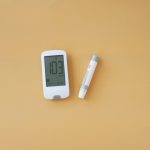Introduction: Are You Missing the Signs of a Weak Immune System?
Your immune system is your body’s first line of defense against illness. But what if it’s not functioning at its best? Knowing how to spot the signs of a weak immune system can help you prevent chronic illness, recover faster, and live healthier. In this post, you’ll learn the common symptoms, causes, and ways to strengthen your immune system naturally.
Table of Contents
What Is a Weak Immune System?
A weak or compromised immune system means your body is less effective at fighting off infections, viruses, and toxins. This condition is also called immunodeficiency and can be either temporary (caused by stress or poor diet) or chronic (linked to medical conditions like HIV or autoimmune diseases).
How to Know If You Have Weak Immune System
Below are key warning signs and health indicators that your immune system may need support.
1. You Get Sick Frequently
H4: Constant colds, flu, or infections?
If you’re catching colds more than 3–4 times a year or taking longer than usual to recover, this could be a red flag. A healthy immune system typically fights off common pathogens quickly.
According to the Cleveland Clinic, people with low immunity may also experience frequent bronchitis, pneumonia, or sinus infections.
2. Slow Wound Healing
H4: Cuts, scrapes, or bruises not healing well?
Your immune system plays a key role in repairing skin tissue. If wounds linger for weeks, it could be a sign your immune response is weakened.
3. Frequent Digestive Issues
H4: Bloating, diarrhea, or constipation?
Over 70% of your immune cells are in your gut. An unhealthy gut microbiome can impair immune function. Regular digestive discomfort may signal low immune resilience.
4. Constant Fatigue
H4: Always feeling drained—even after rest?
Chronic tiredness can occur when your body is using most of its energy to ward off internal inflammation or infection. This is common in people with underactive immune systems.
5. Recurring Infections
- Ear infections
- Urinary tract infections (UTIs)
- Fungal infections like thrush or athlete’s foot
Recurrent infections may mean your immune system isn’t producing enough white blood cells to fight pathogens.
What Causes a Weak Immune System?
Knowing the root cause can help you find the right treatment or lifestyle changes.
1. Poor Nutrition
Deficiencies in vitamins C, D, A, and zinc directly affect your immune function.
NIH studies confirm that malnutrition is one of the most common causes of low immunity worldwide.
2.Chronic Stress
Long-term stress raises cortisol, which suppresses immune function. If you’re constantly anxious, your immune system may be in survival mode, unable to perform optimally.
3. Lack of Sleep
Getting less than 6 hours of sleep regularly can reduce your body’s production of immune cells and increase inflammation.
4. Underlying Medical Conditions
- Autoimmune diseases (like lupus or rheumatoid arthritis)
- Diabetes
- Cancer treatments
- HIV/AIDS
These can compromise immune function either directly or through medication side effects.
How to Support and Strengthen Your Immune System Naturally
Even if you suspect your immune system is weak, there are ways to boost it safely.
1. Eat an Immune-Boosting Diet
Focus on:
- Colorful fruits and vegetables
- Garlic and ginger
- Yogurt and fermented foods
- Leafy greens and nuts
2. Get Enough Quality Sleep
Aim for 7–9 hours per night. Keep your room dark and cool, and avoid screens before bed.
3. Exercise Moderately
Too much or too little exercise can impair immunity. Moderate activity (like walking or yoga) boosts circulation and white blood cell activity.
4. Stay Hydrated
Water helps flush out toxins and supports cellular function. Avoid sugary drinks and excess caffeine.
5. Manage Stress Daily
Try meditation, deep breathing, journaling, or spending time in nature.
6. Consider Supplements Wisely
Talk to a healthcare provider about taking:
- Vitamin D
- Zinc
- Probiotics
- Elderberry or echinacea (short-term use)
Mayo Clinic advises discussing supplements with a doctor to avoid drug interactions.
When to See a Doctor
If you’re experiencing multiple symptoms or have a known condition that affects immunity, it’s essential to consult a doctor. They may recommend immune function tests or refer you to an immunologist.
Conclusion: Listen to Your Body, Strengthen Your Health
Understanding how to know if you have weak immune system can empower you to take early action. With small but consistent lifestyle changes, you can strengthen your immune defenses and live a more resilient life.
Call to Action
Want more health insights like this? Subscribe to our newsletter for weekly tips on boosting your immunity and staying well year-round.








